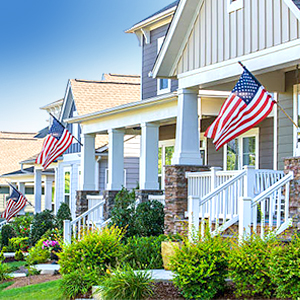Our National Policy Agenda
NEFI is a leading voice for heating fuel dealers and home comfort providers across America, promoting the interests of these mostly small, family-owned businesses in the halls of government, including the U.S. Congress and federal agencies. We keep our members informed and engaged through various publications, legislative alerts, and occasional calls to action. Our government affairs and advocacy programs focus on a range of critical issues affecting these businesses and the communities they serve.

American families, working with their local heating fuel provider or service technician, are best positioned to make decisions about heating and cooling their homes. We oppose heating fuel and appliance bans and electrification mandates that limit choice and increase costs. Instead, we advocate for policies that empower consumers to choose the most efficient and reliable solutions for their needs. This may include hybrid heating systems that combine heat pumps with efficient renewable fuel-compatible furnaces or boilers, as well as fuel-fired backup generators – ensuring reliable heat and power during extreme weather events and grid disruptions. Policies that encourage market innovation and competition, rather than imposing arbitrary restrictions, are best suited to improve system performance while preserving consumer choice and energy security.

Renewable heating fuels such as Bioheat® Fuel and renewable propane, produced from sustainable feedstocks, provide an immediate and cost-effective path to reducing emissions while strengthening American energy security and reliability. These fuels utilize existing infrastructure and current heating systems, eliminating the need for costly conversions. When combined with high-efficiency heating equipment and weatherization improvements, renewable fuels deliver optimal home comfort and energy savings. Our industry's voluntary commitment to increasing renewable fuel adoption, while promoting efficient heating systems and weatherization, creates American jobs and supports our small family businesses. We advocate for policies that advance renewable fuel innovation and empower consumers to make energy choices that best suit their needs.

Our members face an increasingly complex web of government regulations that drive up operating costs and can affect their ability to deliver vital heating fuels and HVAC services to their customers. We advocate for streamlining regulatory requirements while maintaining high standards of safety and reliability. This includes reducing duplicative paperwork and eliminating unnecessary red tape that disproportionately impacts small businesses. Sensible regulatory reform will allow our mostly small family businesses to focus on what matters: serving their local communities, creating jobs, and investing in new technologies and employee training. We work with policymakers to ensure regulations are practical, cost-effective, and maintain a level playing field for all businesses.

NEFI supports policies addressing critical workforce shortages in the home comfort industry, including fuel delivery drivers and skilled home energy technicians. We promote vocational schools and well-structured apprenticeship programs as pathways to rewarding careers in the trades. We believe government policies should recognize relevant military experience and lower barriers to entry for veterans seeking commercial driver's licenses (CDLs) and hazardous materials endorsements. This includes young veterans ages 18-21 who have relevant experience transporting hazardous materials while serving. Working with our state association partners and allies in the broader trucking and HVAC industries, we support programs aimed at creating a strong American workforce that will help our industry meet its evolving needs.

NEFI works collaboratively with industry groups that advocate for our members and their customers at the state and local level. Many states have enacted policies that significantly impact home heating costs, consumer choice, and energy security and reliability. Proposed heating fuel and appliance bans and electrification mandates will have extraordinary impacts on energy costs, home comfort, and even the stability of the power grid – particularly policies pushing electrification without regard for the extraordinary costs, infrastructure limitations, or extreme weather vulnerabilities. Working alongside our state and regional partners, we help our members navigate complex policy proposals and advocate for practical solutions that preserve consumer choice and ensure access to safe, affordable and reliable home energy solutions.
This National Policy Agenda was unanimously approved at the NEFI Board of Directors in Grafton, Vermont on December 11, 2024. This important work is only possible by through the generous support of NEFI members. If you are not yet a member, please consider joining us! If you are a member and have not yet donated to our Advocacy Fund, or wish to increase a previous donation, please visit our donation page.